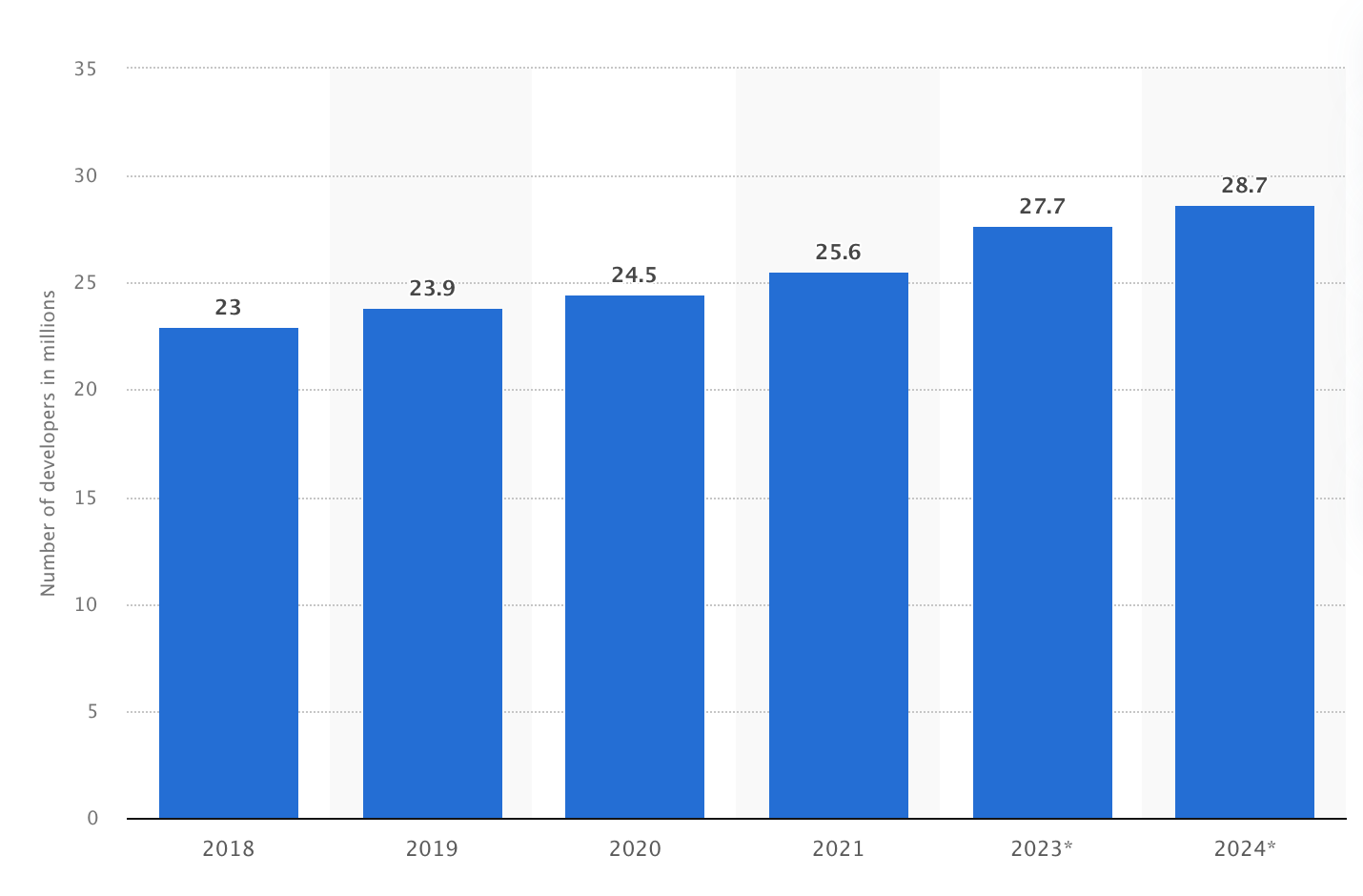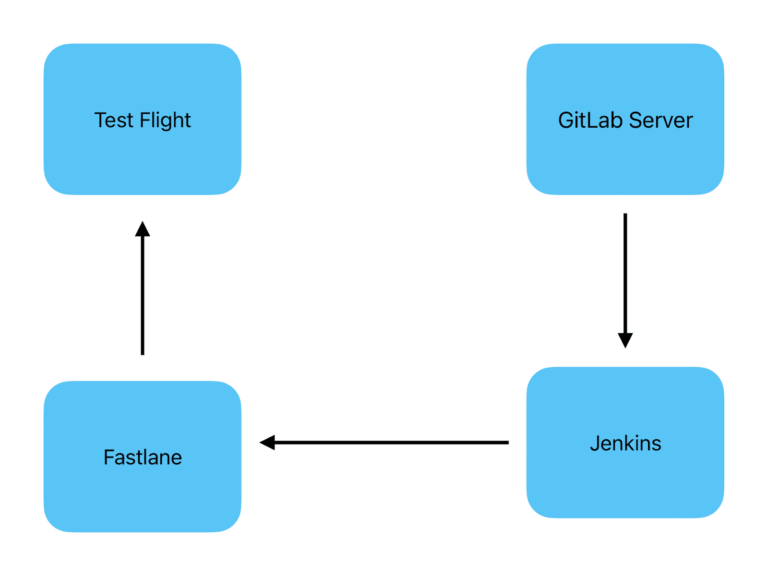The future of IT (or why IT specialists will remain in demand for a long time)
So, the world became acquainted with IT as a field of activity not so long ago – around the 60s. That is, IT has been undergoing active transformation for more than half a century – mainframes, home PCs, services, ML and IoT – there is no doubt that each change (I am sure that the list can be continued) is fundamental, giving birth to a new market. Yes, in IT everything goes ahead – the new technology triggers, and then everything rushes like a snowball. For most, the picture below is very familiar – the average track of each such “silver bullet”:

Thus, there is no doubt that IT is changing rapidly and fluctuatingly. How soon will we learn about a new IT trend? A question that can be answered tomorrow. The potential for new ideas is unlimited. As one of my bosses said:
If you are tired and can’t think of anything, know that we only use 10% of our brain, that is, 90% is still left!
To make an analogy, let's look at natural evolution, which began with bacteria and viruses and today is represented by complex living organisms. How did the simplest forms make it this way in approximately 500 million years and at the end were able to think? In fact, they had no other choice – during this time, everything happened to our planet – a huge asteroid crashed into us several times, global warming or cooling occurred, the composition of the atmosphere and water changed – all this forced bacteria and viruses to adapt and change, but the most important thing is to survive. Why did the fish come out of the water? Because after the next cycle of transition from quantity to quality, there was much less oxygen in the water, and without it it is difficult for protein forms, so they went up.
It turns out that something is constantly happening in the world, and it constantly affects systems (living or IT) – forcing them to adapt. And, as we see, we have 5 fingers, not 2, which means that the adaptation goes through a round of complications. That is, any system in the process of evolution becomes more complex – it acquires additional capabilities (for example, resistance, openness). Systems mix with each other, and new systems are born, and this repeats again and again. In fact, the movement of the world is moving towards universal complication. Actually, IT is going the same way – only much faster than animal evolution! It took Archaea half a billion years to invent sausage, and IT took 10 million times less for the virtual world to become indistinguishable from reality.
There is no doubt that the complication of the world is a trend laid down by this world itself. There is such a well-known book “Shantaram” (author – Gregory David Roberts), which describes in detail and shows, using the example of dialogues within an Indian gang of gangsters, why the world is constantly becoming more complex and what inevitably happens next.
I suspect that I will not be mistaken if I say that IT will become more complex in the future, in all its manifestations, following an older trend. Let's try to imagine the scale of what is happening from a different angle. Website statista states that the “population” of developers over recent years looks like this:

That is, about 30 million people who add complexity to their IT systems every day. Yes, yes, we can argue what percentage of their work is aimed at simplification (working with technical debt, for example), but if we look strategically – we are getting rid of the technologist in order to complicate the system in the future, this is true.
Imagine – 30 million! And we're talking only about developers. But there are also other roles in IT – testers, analysts, the notorious architects in the end (who, I note, are increasingly discriminated against by comparison with analysts). And this “gang” complicates the existing economy every day, every day!
So we've looked at the trend and it's clear – it's increasing complexity. We looked at the growth of the developer population – and we understand that complexity is accelerating. The time has come for conclusions, and to make it a little clearer, I will point out that this is a forecast for the next 30-40 years:
Work – will be
IT professionals will not remain unemployed in the coming decades, as the number of vacancies will continue to grow steadily as businesses compete to the last.Demands will increase
IT specialists with extensive practical experience will be more in demand on the market. We still see such a imbalance – the Junes have a hard time, and in the future it will be even more difficult. The demand for experienced specialists will be determined by the increasing degree of complexity of IT systems (the bloody enterprise will become hellish, and so on).They will pay extra for specialization
Complexity gives rise to increased specialization (as a form of chaos management) – there will be fewer programming languages, but they will be much more complex, and the entry threshold will become even higher. Specialization in subject areas will also become more pronounced – AI in metallurgy, chats in telemedicine, big data in the study of public opinion. A developer from a bank will now find a job faster in another bank than in a related field. This stratification will increase in the future. More new roles will appear, similar to SRE, DevSecOps, etc., distributed across subject areas. Fullstack will fade into oblivion.Courses – all right!
IT courses (enter IT) will die out because they will no longer be able to provide real value to their end customers – not the students who bought them, but the entrepreneurs who formed the niches. The level of requirements will be insurmountable in a conventional month or 3. The workforce will be raised and trained from elementary school, or better yet, from a school run by a technology giant.
So an incredible denouement awaits us (will it really come?), terribly interesting, apparently. But more on that later!





